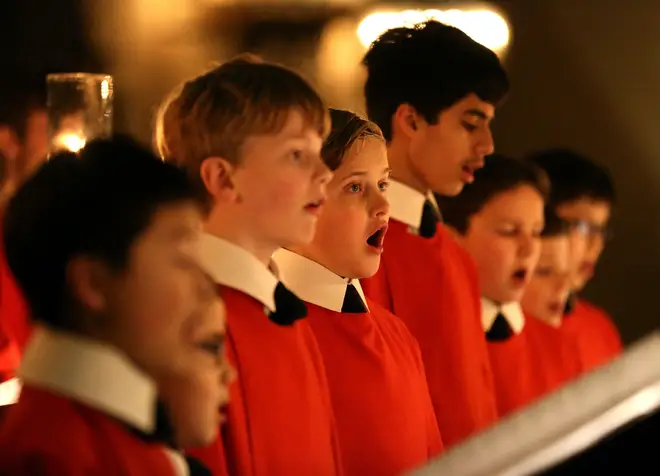On Air Now
Calm Classics with Ritula Shah 10pm - 1am
2 December 2022, 10:42

King's College Cambridge 2010 #10 God Rest You Merry, Gentlemen
‘God Rest Ye Merry, Gentlemen’ is one of our favourite minor key Christmas carols, but what are the lyrics about and why don’t they all rhyme?
‘God Rest Ye Merry, Gentlemen’ is one of the oldest Christmas carols there is, and one of the most popular. The carol originates from 16th-century England and the earliest known printed edition was published in 1760.
It has been known by different names throughout history, including ‘God Bless You, Merry Gentlemen’ and ‘God Rest Ye, Merry Christians’, and even makes an appearance in Charles Dickens’ A Christmas Carol, early on when Scrooge is terrifying carol singers with his foul temper.
The novel reads: “At the first sound of ‘God bless you, merry gentlemen! May nothing you dismay!’, Scrooge seized the ruler with such energy of action that the singer fled in terror, leaving the keyhole to the fog and even more congenial frost.”
Read more: 30 greatest Christmas carols of all time

God rest ye merry gentlemen
Let nothing you dismay
For Jesus Christ our Saviour
Was born on Christmas Day
To save us all from Satan's pow'r
When we were gone astray
O tidings of comfort and joy
Comfort and joy
O tidings of comfort and joy
From God our Heavenly Father
A blessed Angel came;
And unto certain shepherds
Brought tidings of the same,
How that in Bethlehem was born
The Son of God by Name.
O tidings of comfort and joy,
Comfort and joy
O tidings of comfort and joy
The shepherds at those tidings
Rejoiced much in mind,
And left their flocks a-feeding
In tempest, storm and wind,
And went to Bethlehem straightway
The Son of God to find.
O tidings of comfort and joy,
Comfort and joy
O tidings of comfort and joy
But when to Bethlehem they came,
Whereat this infant lay,
They found Him in a manger,
Where oxen feed on hay;
His Mother Mary kneeling down,
Unto the Lord did pray.
O tidings of comfort and joy,
Comfort and joy
O tidings of comfort and joy
Now to the Lord sing praises,
All you within this place,
And with true love and brotherhood
Each other now embrace;
This holy tide of Christmas
All other doth efface.
O tidings of comfort and joy,
Comfort and joy
O tidings of comfort and joy.
Like a lot of well-known Christmas carols, the lyrics (see below) of ‘God Rest Ye’ centre around the joy experienced at the news of Christ’s birth – all sung in a beautiful minor melody.
Born on Christmas Day, the Christ the Saviour will “save us all from Satan's power / When we were gone astray.”
The lyrics are wonderfully uplifting and it is indeed difficult to feel dismay with those wonderful “tidings of comfort and joy” the carol shares in abundance.
Read more: Best Christmas carols in a minor key

New Zealand Police warm hearts as they sing Christmas carols
Last year, we noticed carol singers and vexed tweeters were taking to their keyboards to vent over the fact second and forth lines of the third verse of ‘God Rest Ye’ don’t rhyme exactly as they should.
It’s the carol’s sheer age that contributes to this.
You see, back in 16th-century England, some pronunciations were pretty different, owing to a Great Vowel Shift – a series of changes in pronunciation that affected the long vowels used in English – roughly during the 15th to 18th centuries.
Long vowels shifted upwards; that is, a vowel that used to be pronounced in a lower place in the mouth would be pronounced in a different place, higher up in the mouth. ‘wind’ used to be pronounced ‘waind’, as in ‘find’; it had a longer vowel, which was pronounced in a lower place in the mouth to its modern pronunciation.
The Oxford English Dictionary confirms this – that until a few hundred years ago, ‘waind’ used to be the normal English pronunciation for ‘wind’ when used in poetry.
So there you have it.